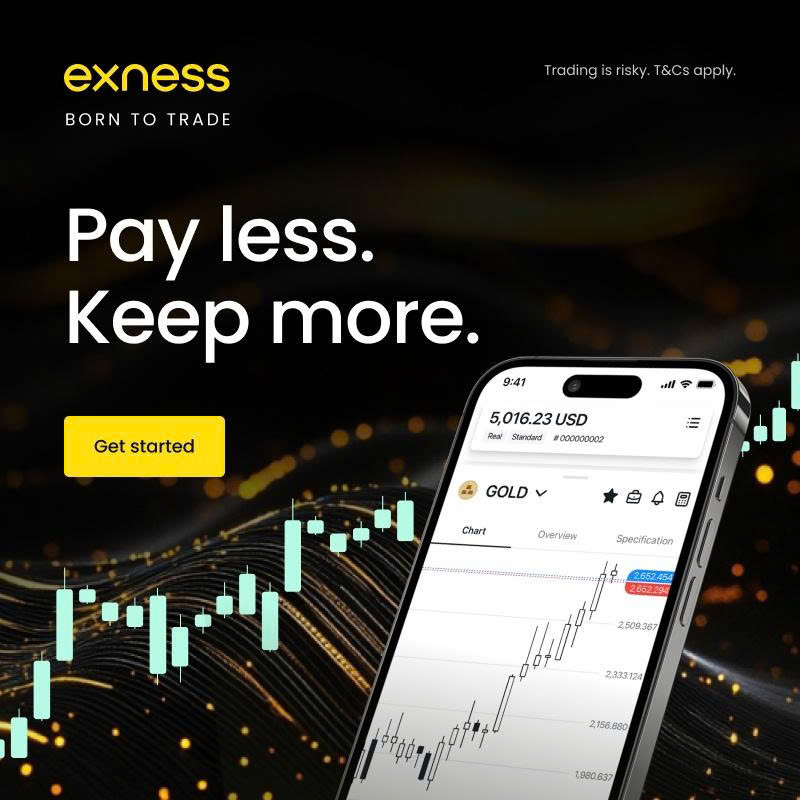
8 minute read
Is Forex Trading Legal in Mauritius? A Comprehensive Guide
Forex trading, the act of buying and selling currencies on the global market, has become a popular financial activity worldwide, with a daily trading volume exceeding $7 trillion. As an emerging financial hub in Africa and the Indian Ocean region, Mauritius has attracted significant attention from both retail and institutional traders. But one critical question remains for those looking to enter the market: Is forex trading legal in Mauritius?
Top 4 Best Forex Brokers in Mauritius
1️⃣ Exness: Open An Account or Visit Brokers 🏆
2️⃣ XM: Open An Account or Visit Brokers 💥
3️⃣ JustMarkets: Open An Account or Visit Brokers ✅
4️⃣ Quotex: Open An Account or Visit Brokers 🌐
In this in-depth guide, we’ll explore the legality of forex trading in Mauritius, the regulatory framework, licensing requirements, tax implications, and practical tips for traders. Whether you’re a beginner eager to start trading or an experienced investor considering Mauritius as a base, this article will provide clarity and actionable insights.
Understanding Forex Trading
Forex, or foreign exchange trading, involves speculating on the price movements of currency pairs, such as EUR/USD (Euro vs. US Dollar) or GBP/JPY (British Pound vs. Japanese Yen). Traders aim to profit from fluctuations in exchange rates using tools like technical analysis, fundamental analysis, and platforms such as MetaTrader 4 (MT4) or MetaTrader 5 (MT5). The forex market operates 24/5, is decentralized, and includes participants like central banks, commercial banks, hedge funds, corporations, and retail traders.
Mauritius has positioned itself as a growing hub for forex trading due to its favorable regulatory environment, strategic location, and robust financial infrastructure. But what does the legal landscape look like for forex trading in this island nation?
Is Forex Trading Legal in Mauritius?
The short answer is yes, forex trading is legal in Mauritius for both retail and institutional traders. Mauritius has established itself as a reputable financial center, offering a well-regulated environment that balances investor protection with business-friendly policies. The legality of forex trading is governed by a robust framework overseen by the Financial Services Commission (FSC), the primary authority for non-banking financial services in Mauritius.
Key Legal Points:
Regulated Activity: Forex trading is permitted as long as traders and brokers comply with FSC regulations.
Licensing Requirement: Forex brokers must obtain an Investment Dealer License or a Global Business License (GBL) from the FSC to operate legally.
Retail Trading: Individual traders can engage in forex trading through licensed brokers without needing a personal license.
Investor Protection: The FSC enforces strict guidelines to ensure transparency, fairness, and security in financial markets.
This regulatory framework makes Mauritius an attractive destination for traders and brokers alike, combining compliance with operational flexibility.
The Regulatory Framework for Forex Trading in Mauritius
Forex trading in Mauritius is governed by several key pieces of legislation that ensure a transparent and secure environment. These include:
Financial Services Act (2007): This act outlines the regulatory framework for financial services providers, including forex brokers, and establishes the FSC’s authority to license and supervise firms.
Securities Act (2005): This legislation covers forex derivatives and contracts for difference (CFDs), expanding the range of financial instruments available to traders.
Companies Act: Governs the incorporation and operation of businesses, including forex brokerages, in Mauritius.
Anti-Money Laundering (AML) Laws: Mauritius complies with international AML standards set by the Financial Action Task Force (FATF), ensuring forex trading does not facilitate illicit activities.
The Bank of Mauritius (BoM), the country’s central bank, complements the FSC by focusing on monetary policy and banking regulation. While the BoM does not directly regulate forex trading, it ensures currency stability, which can impact currency pairs involving the Mauritian Rupee (MUR).
Together, these laws and institutions create a structured environment where traders can operate with confidence, knowing their interests are protected.
Licensing Requirements for Forex Brokers
To operate legally in Mauritius, forex brokers must obtain a license from the FSC. The two primary licenses are:
Investment Dealer License: Allows brokers to offer a wide range of investment services, including forex trading, to retail and institutional clients.
Global Business License (GBL): Designed for companies conducting business primarily outside Mauritius, enabling them to offer forex trading services to international clients while benefiting from the island’s regulatory framework.
Licensing Process:
Application Submission: Brokers must submit detailed documentation, including a business plan, financial projections, AML/KYC policies, and information about directors and shareholders.
Capital Requirements: The minimum capital requirement is approximately MUR 1 million (around $22,500), making it relatively affordable compared to other jurisdictions.
Review and Approval: The FSC conducts a thorough review, which may take 6–8 months, ensuring the broker meets financial stability and compliance standards.
Ongoing Compliance: Licensed brokers must maintain adequate capital reserves, provide transparent reporting, and segregate client funds for protection.
By choosing a licensed broker, traders can ensure they are operating within a regulated environment, reducing the risk of fraud or financial mismanagement.

✅ Trade with Exness now: Open An Account or Visit Brokers 👈
Tax Implications for Forex Traders in Mauritius
Mauritius offers a favorable tax environment for forex traders, making it an attractive destination for both individuals and businesses. Key tax considerations include:
Corporate Tax: The standard corporate tax rate is 15%, but companies with a Global Business License may benefit from exemptions or reduced rates.
Individual Income Tax: Profits from forex trading are subject to income tax for residents, but Mauritius’s tax rates are competitive compared to other jurisdictions.
Double Taxation Agreements (DTAs): Mauritius has DTAs with several countries, preventing traders from being taxed twice on the same income, which is particularly beneficial for international investors.
These tax advantages, combined with a business-friendly environment, make Mauritius an appealing base for forex trading operations.
Benefits of Forex Trading in Mauritius
Mauritius offers several strategic advantages for forex traders and brokers:
Low Capital Requirements: Compared to jurisdictions like the UK or US, Mauritius has lower capital requirements for brokers, making it accessible for startups.
Flexible Leverage: Unlike stricter jurisdictions, Mauritius has no official restrictions on leverage, allowing brokers to offer higher leverage options (up to 500:1 in some cases).
Global Market Access: Mauritius’s strategic location between Africa and Asia provides time zone overlap, facilitating access to major financial markets.
Reputable Regulation: The FSC is globally recognized for its thorough yet fair regulatory approach, enhancing the credibility of Mauritius-based brokers.
Cost-Effective Operations: Setting up and running a forex brokerage in Mauritius is more cost-effective than in tier-1 jurisdictions, with lower licensing and compliance costs.
These benefits make Mauritius an ideal choice for traders and brokers seeking a balance between regulation and operational flexibility.
Choosing a Forex Broker in Mauritius
When selecting a forex broker in Mauritius, traders should prioritize those regulated by the FSC or other reputable authorities (e.g., CySEC, FCA, ASIC). Here are some top brokers operating in Mauritius:
BDSwiss: Regulated by the FSC, offers low spreads (from 0.3 pips), a minimum deposit of $10, and access to MT4, MT5, and WebTrader platforms.
Exness: Holds an FSC license and provides ultra-low spreads (from 0.2 pips) and a wide range of instruments, including forex, indices, and cryptocurrencies.
XM Group: Regulated by multiple authorities, including the FSC, and supports over 55 forex pairs with no commission fees on standard accounts.
Traders should also consider factors like trading platforms, spreads, leverage, and customer support when choosing a broker. Always verify a broker’s regulatory status to avoid scams.
Tips for Successful Forex Trading in Mauritius
Choose a Regulated Broker: Ensure your broker is licensed by the FSC or another reputable authority to protect your funds.
Start with a Demo Account: Practice trading strategies risk-free to gain experience before investing real money.
Understand Risks: Forex trading involves high risks, with 74–89% of retail traders losing money due to leverage. Only trade with capital you can afford to lose.
Stay Informed: Keep up with market news and economic events that impact currency prices.
Leverage Education: Utilize educational resources from brokers like XM or Trading 212 to enhance your trading skills.
Challenges and Considerations
While Mauritius offers many advantages, traders should be aware of potential challenges:
Offshore Perception: Some traders view Mauritius’s offshore regulation as less stringent than tier-1 jurisdictions like the UK or Australia. To mitigate this, choose brokers with additional licenses from reputable regulators.
Market Access Limitations: Mauritius-based brokers may face restrictions in certain markets, such as the EU, due to regulatory differences.
Risk of Scams: While forex trading is legal, unregulated brokers can pose risks. Always verify a broker’s credentials before trading.
Conclusion
Forex trading is legal and well-regulated in Mauritius, making it an attractive destination for traders and brokers. The Financial Services Commission ensures a secure and transparent environment, supported by favorable tax policies and flexible leverage options. By choosing a licensed broker and following best practices, traders can capitalize on Mauritius’s growing status as a financial hub.
Whether you’re a retail trader exploring forex for the first time or a broker seeking a cost-effective jurisdiction, Mauritius offers a compelling mix of opportunity and security.
✅ Trade with Exness now: Open An Account or Visit Brokers 👈
Read more:

